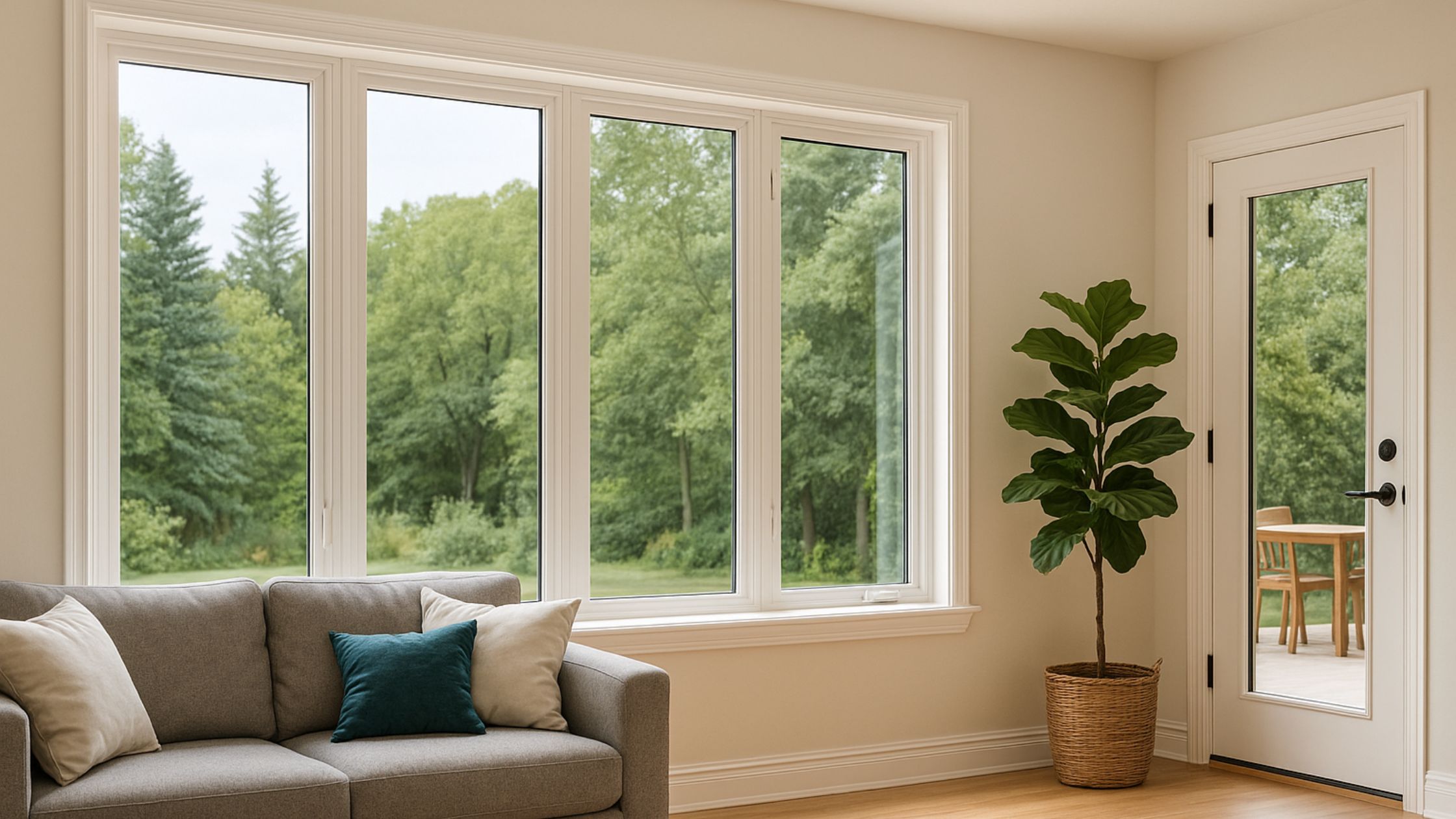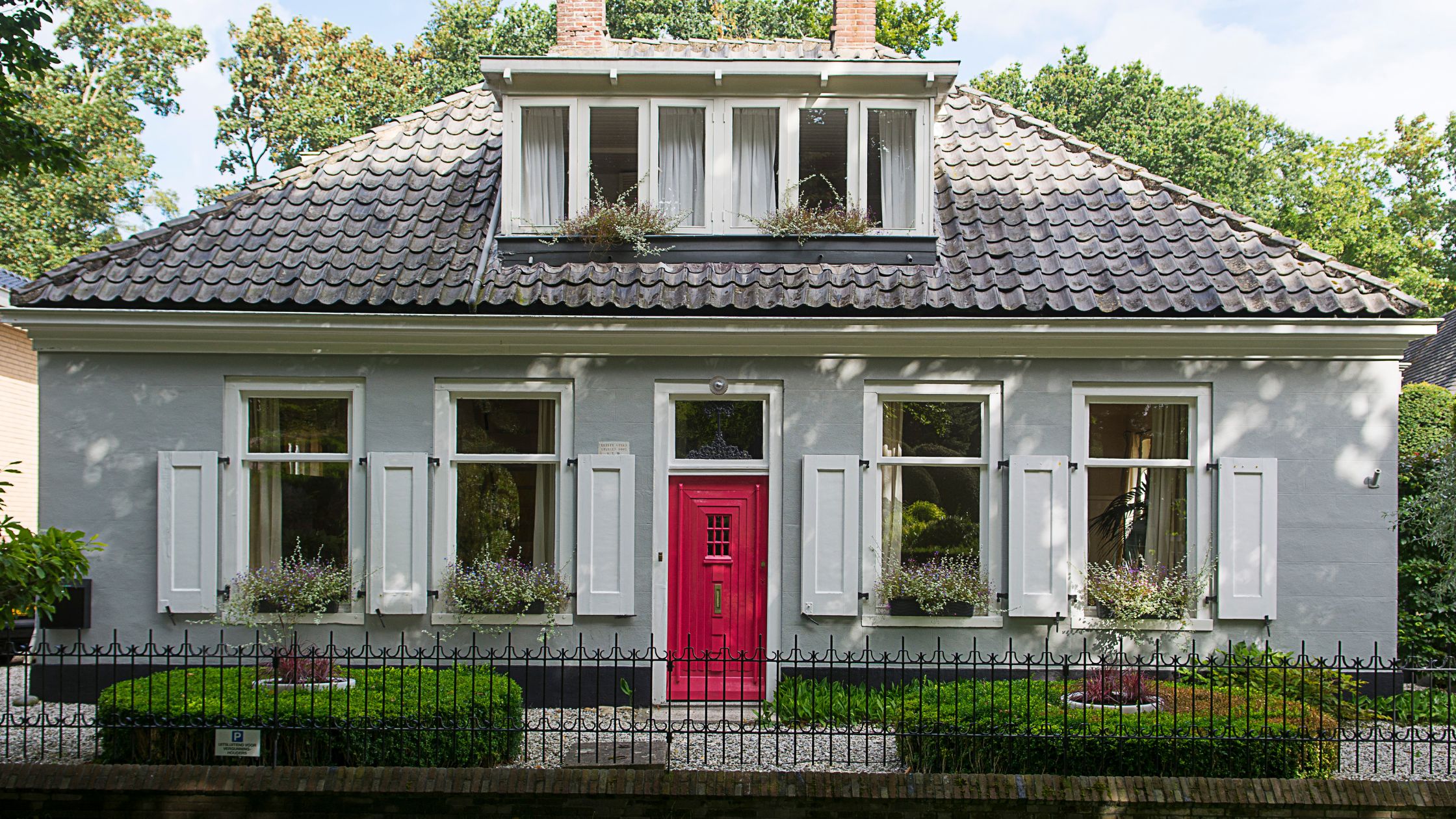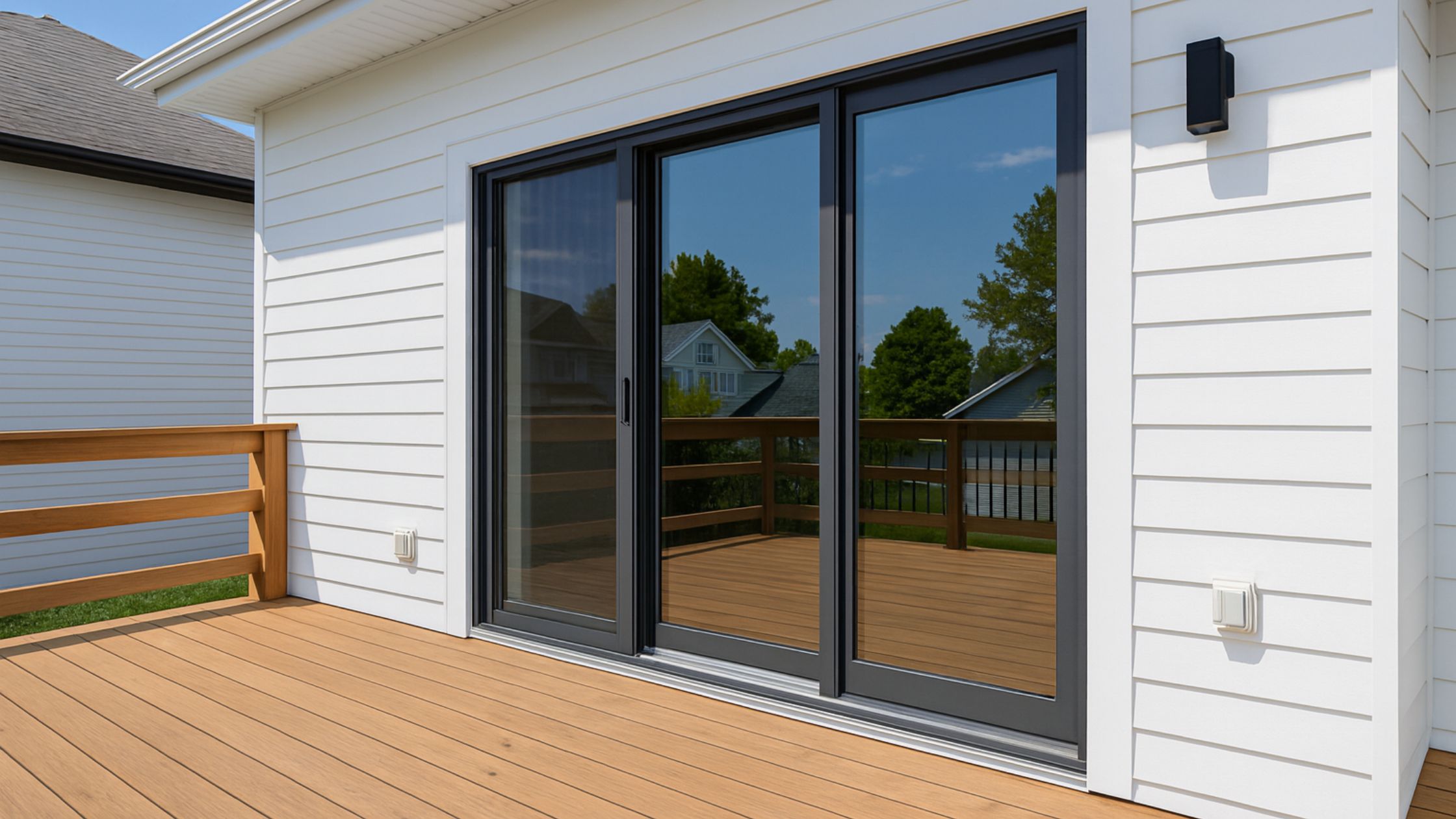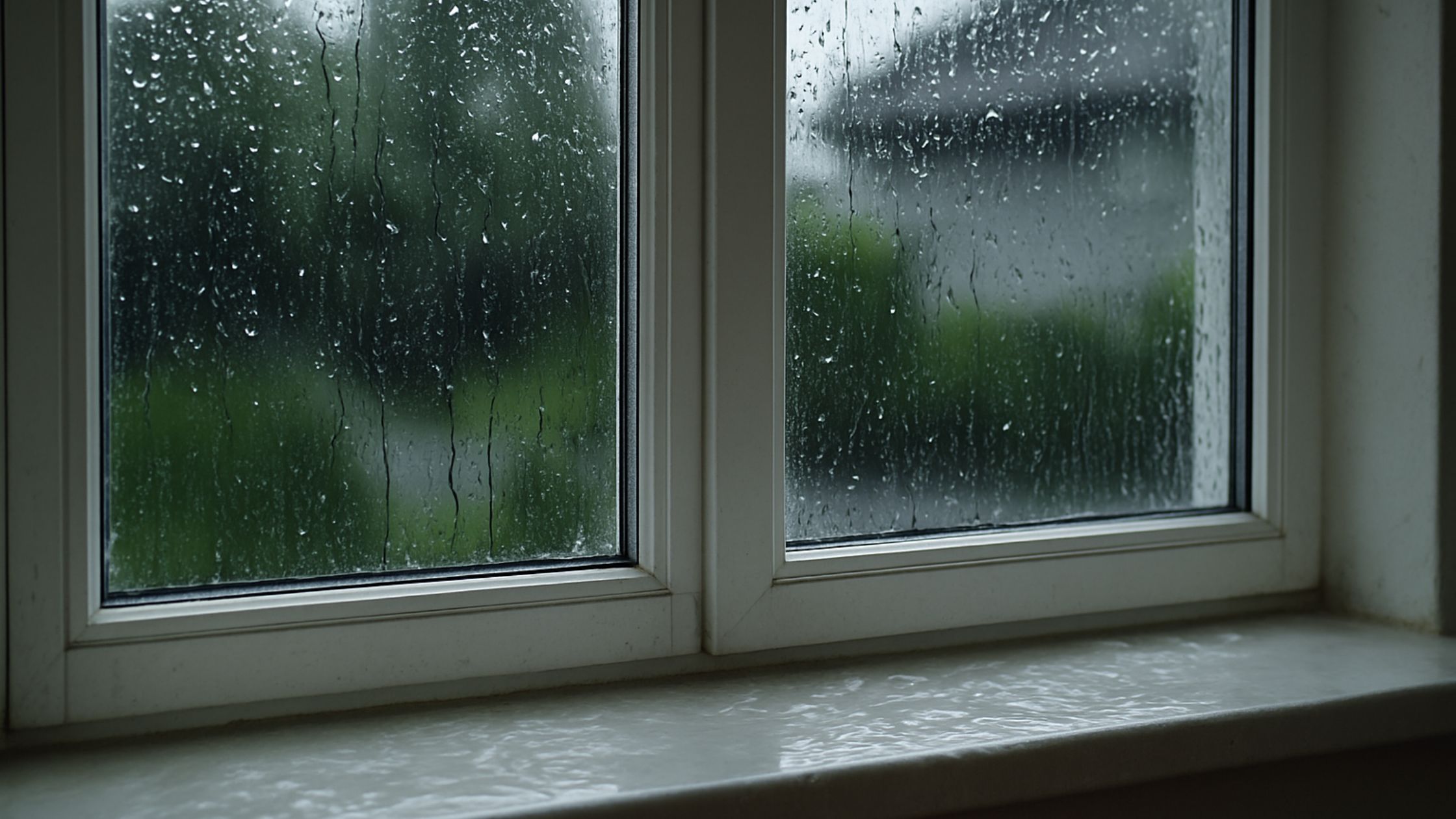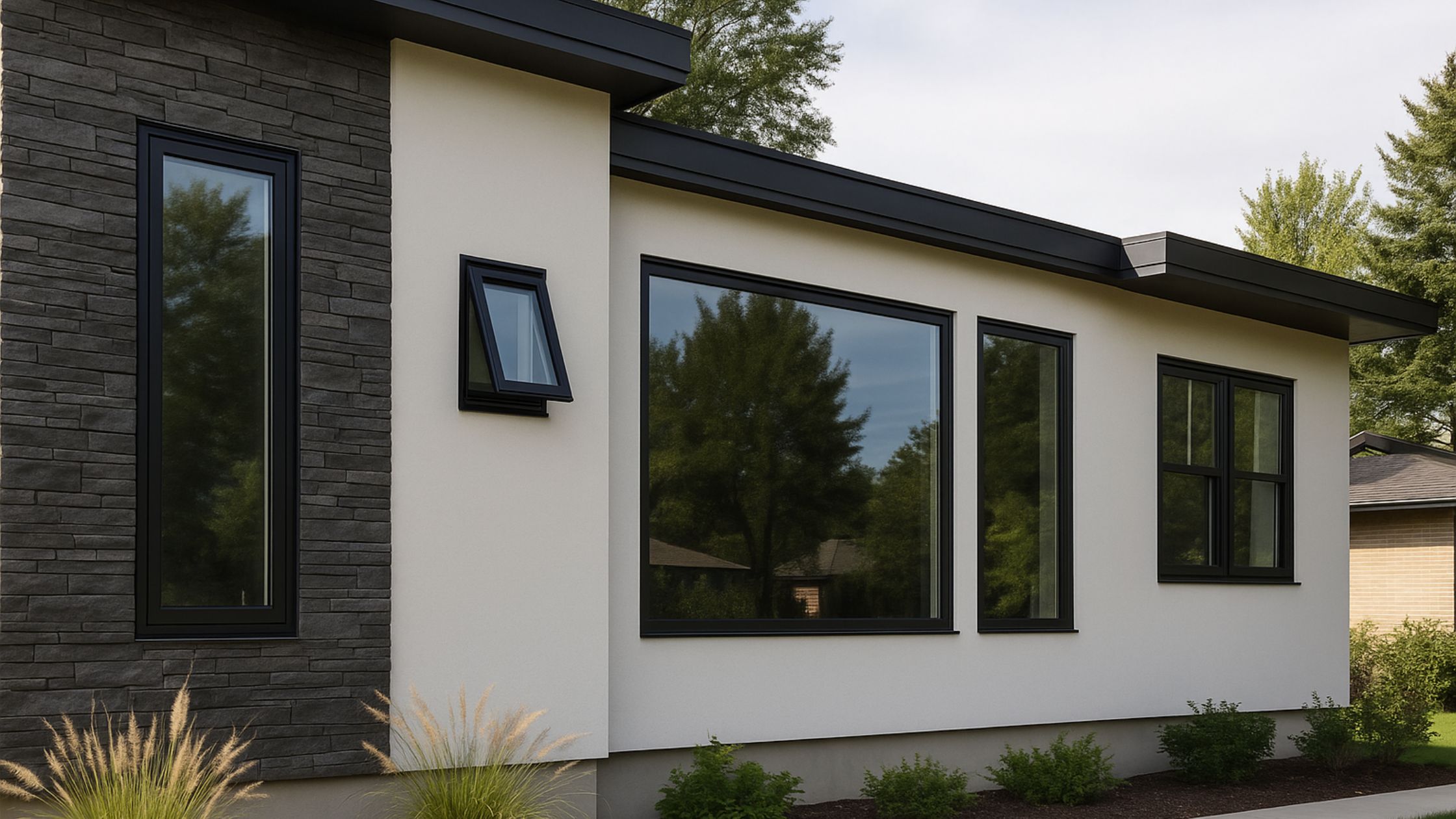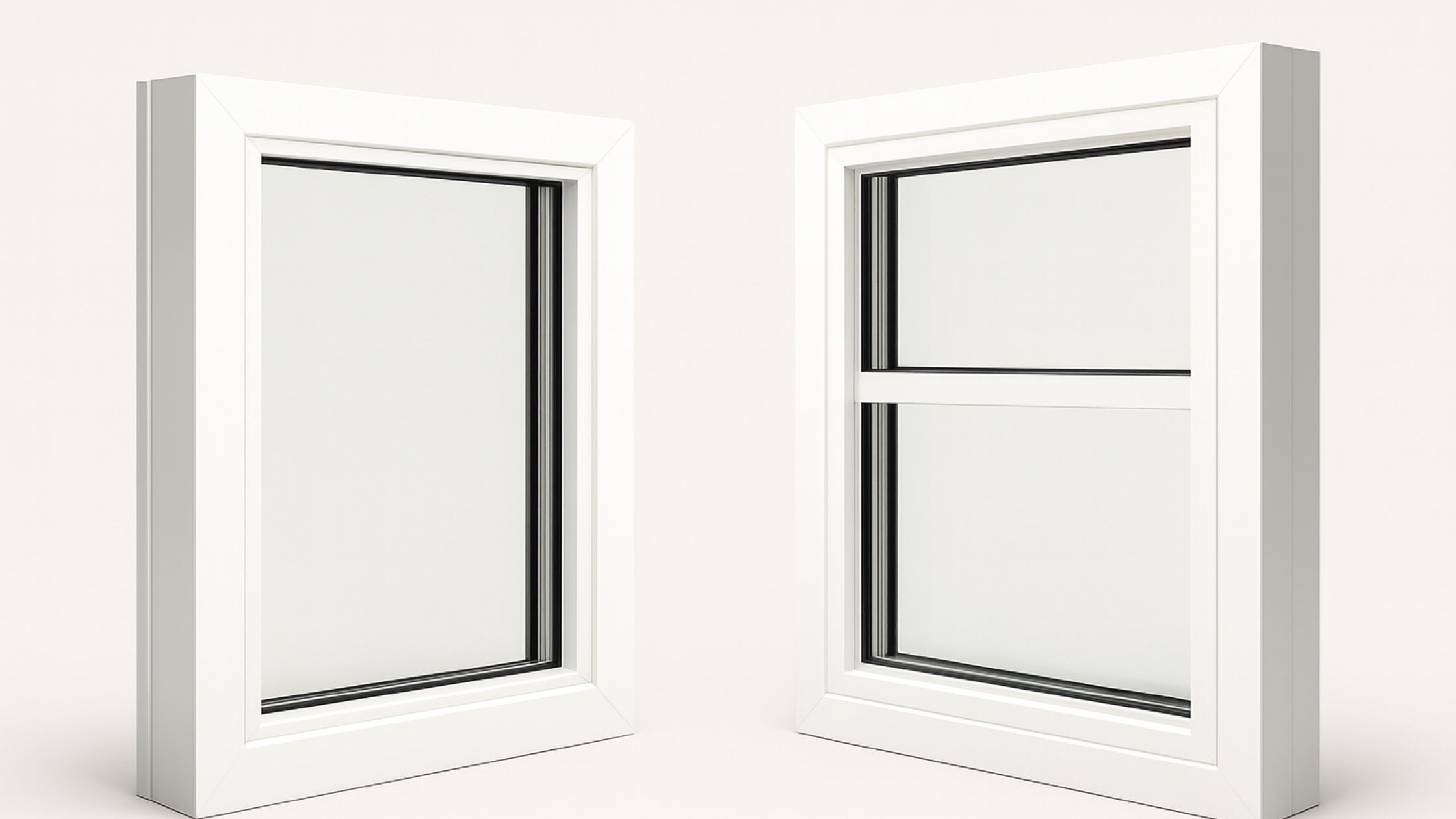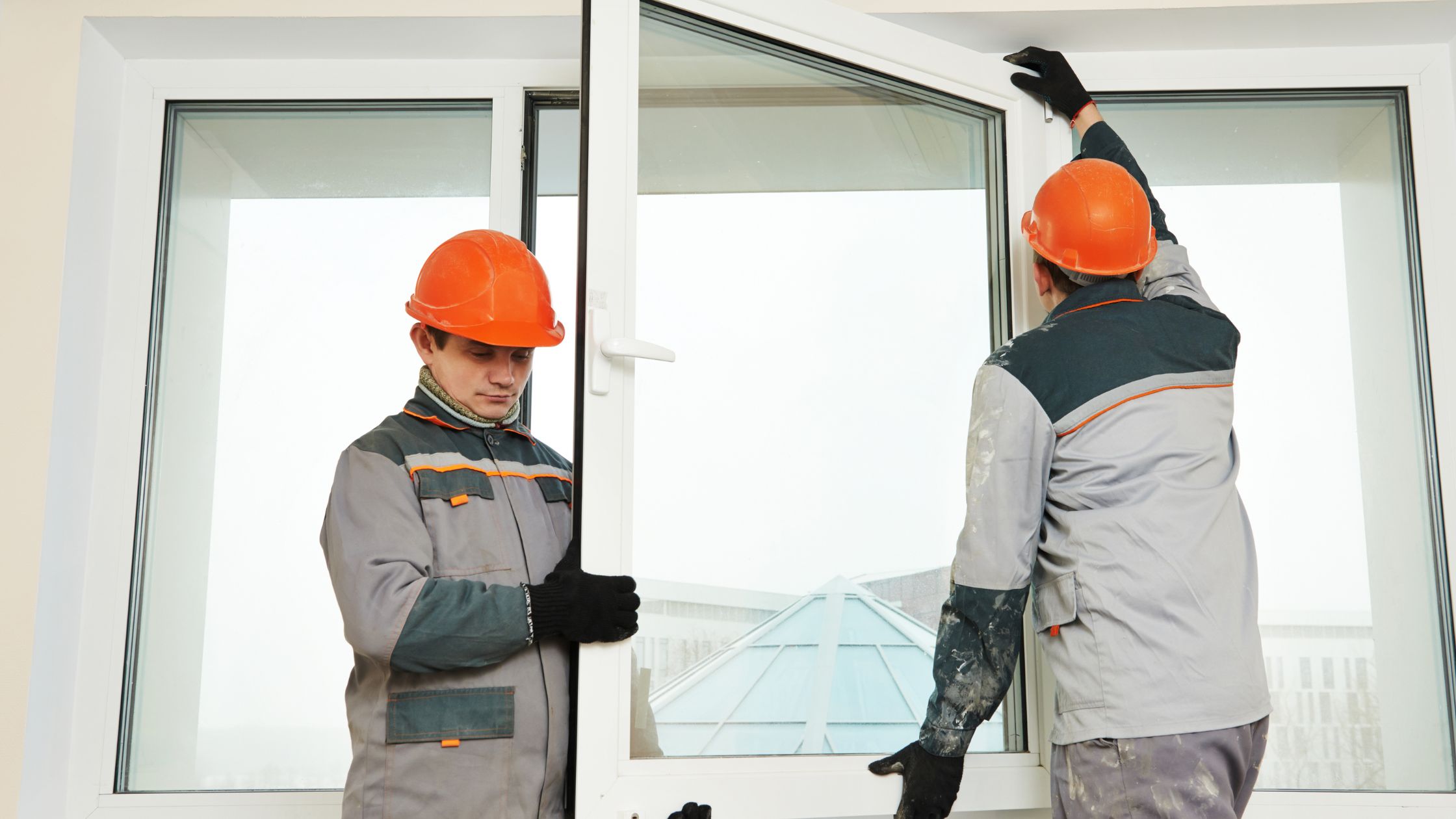Choosing between window types can feel like comparing apples to oranges, but for homeowners across the GTA, this decision often comes down to two favourites: casement windows and double-hung windows. Each has its own strengths, depending on what you value most—cost, airflow, aesthetics, or efficiency.
In this post, we break down everything you need to know to answer the questions: Are casement windows better than double hung? Are double-hung windows cheaper than casement windows? Let’s find out what fits your home and budget best.
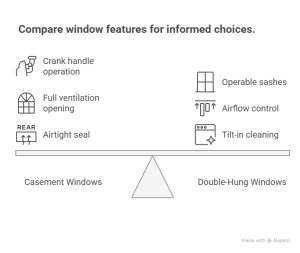
What Are Casement Windows?
Casement windows are side-hinged windows that open outward with a crank. They are ideal for rooms that need maximum ventilation, like kitchens or bathrooms. Because they open fully, they catch breezes with ease and seal tightly when closed.
Key Features:
- Crank handle for easy operation
- Full top-to-bottom opening
- Excellent ventilation
- Strong airtight seal
- Ideal for hard-to-reach places
Casement windows are also a smart choice when it comes to modern styling and unobstructed views. Since there’s no sash dividing the window in the middle, you get a clean, clear look that lets in more natural light. If you’re planning a renovation or new build in the Greater Toronto Area, casement windows bring a fresh, sleek look to any space.
Read more about vinyl casement windows in Toronto.
What Are Double-Hung Windows?
Double-hung windows have two sashes that slide vertically. You can open both the top and bottom sashes, which gives you control over airflow. These are very popular in traditional-style homes and are often easier to maintain.
Key Features:
- Both sashes are operable
- Great airflow control
- Tilt-in cleaning for upper floors
- Classic look for heritage homes
Their versatility makes them a popular option across the GTA. Whether you’re replacing windows in a century-old Victorian or a more modern suburban home, double-hung windows are a safe, reliable pick.
See our guide on single vs double-hung windows.
Energy Efficiency: Who Seals the Deal?
Casement windows generally win this round. Their design allows for a tighter seal compared to the sliding sash of double-hung styles. This helps reduce air leakage, making them a top choice for energy-conscious households in Toronto’s chilly winters.
Because they crank shut and pull tightly against the frame, casement windows prevent drafts far better than double-hung models, especially in older homes where air leakage can be a problem. The difference might not be huge on paper, but over time, it adds up in lower heating bills.
Check out what style of window is most energy efficient.
Ventilation and Airflow
Casement windows open fully, allowing for unmatched ventilation. Double-hung windows provide controlled airflow since you can crack the top, bottom, or both. If you’re looking to maximize fresh air, casements pull ahead.
The direction they open also allows casement windows to catch cross breezes better, which can cool your home naturally in warmer months. For kitchens and bathrooms, this feature is especially handy to clear steam or cooking smells quickly.
Cost Comparison: Are Double-Hung Windows Cheaper Than Casement?
Yes—in most cases. Double-hung windows tend to be more budget-friendly upfront. The simpler design and standard hardware make them cheaper to manufacture and install.
Why are double-hung windows cheaper than casement windows? It comes down to mechanics and materials. Casement windows include a crank mechanism and often more advanced hardware for security and weather sealing. That adds to production and installation costs.
But keep in mind: lower upfront cost doesn’t always mean better value. Casement windows may offer better performance and savings in the long run due to energy efficiency.
Use our guide to window replacement costs to plan your budget.
Ease of Maintenance
Double-hung windows are easier to clean, especially from the inside. Their tilt-in feature makes upper-floor cleaning a breeze. Casement windows, while offering better sealing, can be more awkward to clean from the outside if you don’t have full access.
If cleaning convenience is high on your list, especially for upper-level windows, double-hung may be the smarter pick.
Security and Safety
Casement windows typically have a single-point locking mechanism, which is very secure. When locked, the sash pulls tightly against the frame. Double-hung windows are secure, too, but may have more potential access points due to two operable sashes.
For families with young kids, double-hung windows offer the option to open the top sash only, which is safer and reduces risk.

Aesthetics and Home Style Compatibility
- Casement: Modern, clean, great for contemporary homes
- Double Hung: Timeless, classic, great for heritage or colonial-style homes
Match your window choice with your home’s style. Casement windows complement open-concept interiors and modern architecture. Double-hung windows add character and suit traditional layouts.
Which One Should You Pick?
It depends on what matters most to you:
- Choose casement windows if you want maximum ventilation, top-tier energy efficiency, and modern appeal. Great for hard-to-reach areas like above kitchen sinks.
- Choose double hung windows if you’re budget-conscious, need easy cleaning, or want that classic window look. Perfect for upper-level bedrooms or homes with symmetrical facades.
A mix of both styles often works well, letting you use casement where you want function and double-hung where budget or design demands it.
Related Reading
- How to choose a window replacement company
- Types of vinyl windows
- Awning windows for compact ventilation
- Vinyl windows in Toronto
- Are double-sided slider windows good?
Final Thoughts
So, are casement windows better than double hung? If you’re after efficiency and full airflow, yes. But are double-hung windows cheaper than casement? Also, yes, generally speaking.
The right window choice balances your home’s style, your lifestyle needs, and your budget. Still not sure? Contact us for a personalized recommendation from Polaris Windows & Doors. We’ll help you pick the perfect fit for your home and your wallet.

